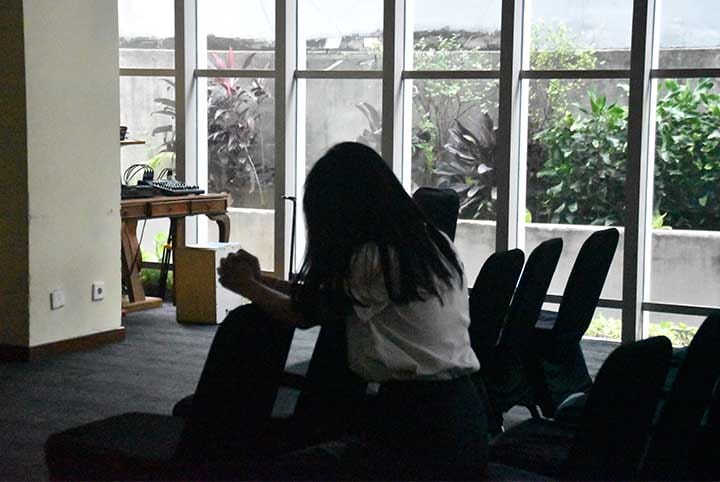Everyone has a need to express what they are going through, especially when they are experiencing burdens, life challenges, and struggles. Whether it's pressure from work, family conflict, anxiety about the future, or even the wound of betrayal from someone close. Eventually, confiding in others becomes an inevitable need. Nowadays many people escape to social media, pouring out their feelings in public spaces, hoping to get sympathy, but instead end up in judgment or misunderstanding. Others choose to remain silent, accumulating mental wounds, and eventually falling into depression.
Modern psychology refers to venting as a form of catharsis, a release of emotions that helps a person reduce inner distress. This seems to be in line with what the psalmist did, in Psalm 55. More than that, the psalmist's experience shows a deeper direction, he addresses his vent to God who is willing to accommodate complaints without judgment. The psalmist opens his heart uncensored, honest with his fears, anxieties, and even his desire to run away. Here we learn that faith does not mean covering up wounds with a fake smile, but rather bringing our deepest anxieties before God. The psalmist begins with four urgent cries, "Give ear, do not hide, pay attention, answer" (verses 2-3). This intensity shows real desperation. He felt oppressed by the enemy, his heart pounding, his body trembling. This expression reminds us that suffering can take a toll on the body.
In the midst of the panic, he wished he could fly away into the wilderness, looking for a safe, quiet hut. This is a universal human image: the longing to escape the hustle and bustle and wounds of life. This desire arose because the psalmist witnessed how the city that should have been a safe haven was instead filled with violence and deceit. Even more painful, the greatest threat he faced was not from foreign enemies, but from those closest to him who betrayed him. The wound of being betrayed by a loved one is always more painful than an enemy attack.
Friends of the Bible, in a noisy world, where venting can easily turn into public consumption, we are invited to find a spiritual "wilderness" (private prayer space) where the soul can freely weep and rest. Speaking to God is the deepest form of human communication. When humans fail to understand us, God remains a safe space that does not divulge secrets, does not minimize suffering, and does not answer with cynicism. He accepts our outpouring as prayer. However, this does not mean that we minimize the role of others. It could be that the people around us are God's messengers, an extension of His hand to help, strengthen, and accompany us through the valley of life.

























